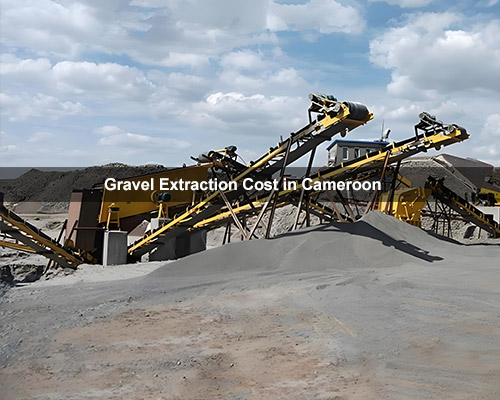Gravel is a vital construction material used in infrastructure projects across Cameroon. Understanding the costs associated with its extraction helps investors and contractors budget effectively. This article breaks down key expenses, regulatory requirements, and market trends affecting gravel extraction costs in Cameroon.

Key Factors Influencing Gravel Extraction Costs
Permit Fees
Obtaining mining permits is mandatory before gravel extraction begins. Costs vary depending on location and project scale. In Cameroon, fees may include:
- Exploration licenses
- Small-scale mining permits
- Environmental compliance certifications
Equipment Costs
Essential machinery impacts costs significantly:
- Excavators ($500–$1,500/day)
- Crushers ($200,000–$500,000 upfront)
- Hauling trucks ($100–$300 per trip)
Labor Expenses
Skilled workers such as machine operators and geologists earn competitive wages, while unskilled labor costs are lower but still a factor.
Transportation and Logistics
Remote quarry locations increase fuel and haulage expenses. Road conditions also affect delivery times and costs.
Regulatory Compliance
Cameroon mandates environmental impact assessments (EIAs) and reclamation bonds, adding to overhead.
Average Gravel Prices in Cameroon
Gravel prices fluctuate based on quality and regional demand:
- Coarse gravel: $8–$15 per ton
- Fine gravel: $10–$20 per ton
Sustainable Gravel Extraction Practices
Cameroon encourages eco-friendly mining techniques, such as:
- Reducing water and dust pollution
- Land rehabilitation post-extraction
- Community engagement programs
Conclusion
Gravel extraction costs in Cameroon are shaped by permits, equipment, labor, and regulations. Investors should conduct feasibility studies and engage local experts to optimize budgets while adhering to environmental laws.
For customized project assessments, consult Cameroon’s Ministry of Mines and Geological Surveys.

